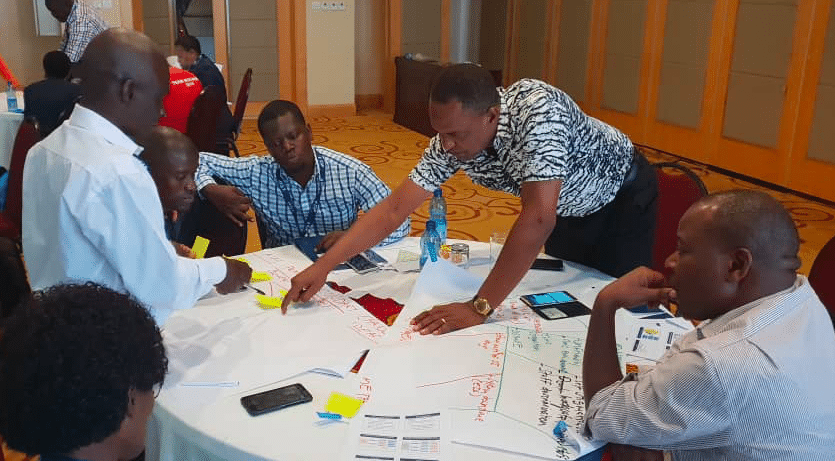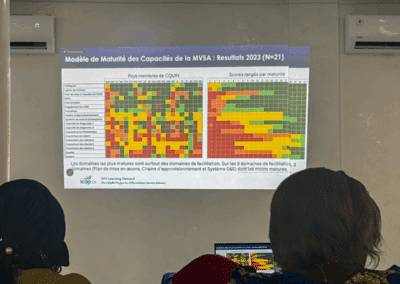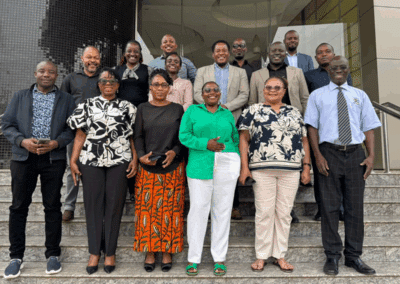In September 2018, the HIV Coverage, Quality, and Impact Network (CQUIN) convened a three-day interactive workshop in Lilongwe, Malawi, focusing on the use of quality improvement (QI) methods to enhance differentiated service delivery (DSD). Participants included DSD implementers from four countries—Malawi, Eswatini, Uganda, and Zimbabwe—who worked with ICAP QI trainers to design and plan QI projects to improve DSD programs.
For countries implementing DSD, the new models can be challenging to implement at scale and with high quality. Upholding the quality of care while introducing new models that change the “who, when, where, and what” of service delivery can be tricky. That’s where QI comes in.
“The CQUIN Network is acting as a direct pathway to overcoming quality challenges that come with differentiating services for recipients of care,” says Gillian Dougherty, BSN, MPH, senior quality improvement technical advisor at ICAP, who led the workshop. “It’s clear that CQUIN has brought these implementers together to set the quality standards for their new DSD models so they can be used on an ongoing basis, and to identify and address challenges.”
Participant teams arrived with a DSD quality challenge that they developed into a project throughout the workshop by conducting root cause analyses, identifying and prioritizing change ideas, drafting measurement plans, and developing QI project plans. Participants were provided with a comprehensive review of contextually appropriate QI concepts, methods, and tools.
“Convening program planners, implementers, health facility staff, and ministries of health helps to advance the scale-up of quality DSD services,” said Peter Preko, MBChB, MPH, CQUIN’s project director. “This kind of exchange ultimately improves the quality of HIV treatment by providing the opportunity for QI refresher training, expert dialogue, and practical south-to-south exchange.”
Ensuring quality services for people living with HIV is a key part of CQUIN’s goal of supporting countries to achieve HIV epidemic control by scaling up DSD. Maintaining program quality and fidelity is a major challenge as countries pilot innovative DSD models and take them to scale. CQUIN supports quality in many ways, including providing technical assistance to ministries of health, developing strong monitoring and evaluation systems, supporting evaluations and assessments, and promoting the use of QI methods within DSD programs.
Early studies from DSD programs have identified quality challenges, including misclassification of patients, changes to program design that discourage patient enrollment, and limited coverage of DSD models. By building the capacity to systematically use QI methods to continually improve performance, ICAP empowers ministries of health and implementers to maximize the impact of DSD.
The CQUIN team plans to follow up with countries on their QI plans in the coming months, as well as replicate similar activity for other small groups of CQUIN network countries. A follow-up multi-country workshop for all network countries is planned for June/July 2019.






